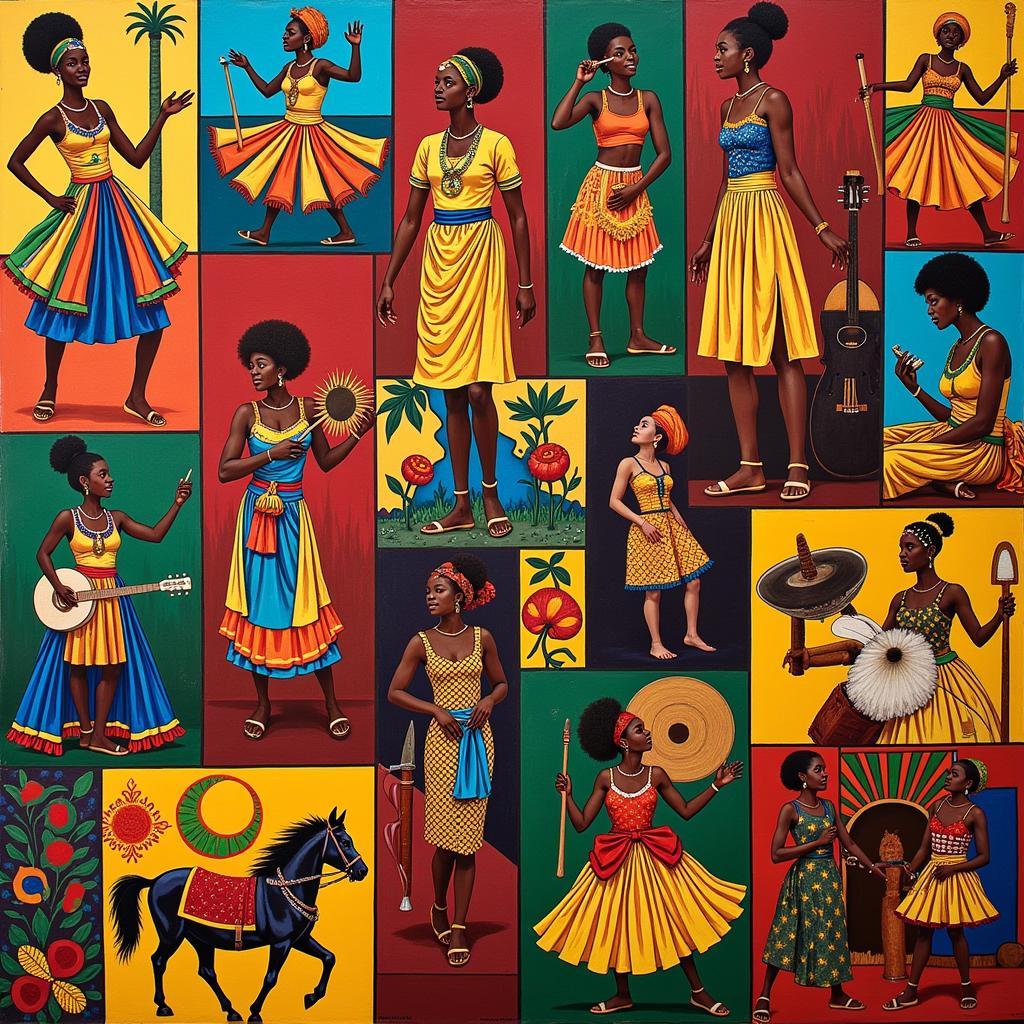African Kids Drinking Dirty Water: A Call for Clean Water Access
The heartbreaking reality of African Kids Drinking Dirty Water is a pressing issue demanding global attention. This article delves into the causes, consequences, and solutions to this water crisis, exploring the impact on children’s health, education, and overall well-being.
The Dire Consequences of Contaminated Water for African Children
Access to safe and clean drinking water is a fundamental human right, yet millions of African children are forced to consume contaminated water daily. This lack of access has devastating consequences, impacting their health, education, and future. Waterborne diseases, such as cholera, typhoid, and diarrhea, are rampant, leading to preventable illnesses and deaths among vulnerable children. These diseases weaken their immune systems, making them susceptible to other infections and hindering their physical and cognitive development.
The Impact on Education and Economic Opportunities
The water crisis also disrupts children’s education. Young girls often bear the responsibility of fetching water, forcing them to miss school and limiting their educational opportunities. This perpetuates a cycle of poverty and inequality, hindering their potential to contribute to their communities and economies. The time spent collecting water could be used for studying, playing, or engaging in other activities crucial for their development.
action africa inc african charities
Understanding the Root Causes of the Water Crisis
The scarcity of clean water in many African communities stems from a complex interplay of factors. Climate change, with its erratic rainfall patterns and prolonged droughts, exacerbates water scarcity. Inadequate infrastructure, including limited access to piped water systems and sanitation facilities, further compounds the problem. Poverty and lack of investment in water resource management also play a significant role.
The Role of Climate Change and Infrastructure Deficiencies
Climate change is a major driver of the water crisis, intensifying droughts and making water sources increasingly unreliable. This puts immense pressure on existing water resources, leading to greater competition and conflict over access. The lack of adequate infrastructure, including water treatment plants and distribution networks, further restricts access to safe water.
Solutions and Initiatives for Providing Clean Water
Addressing this urgent crisis requires a multi-pronged approach. Investing in sustainable water infrastructure, such as wells, boreholes, and rainwater harvesting systems, is crucial. Promoting water conservation practices and educating communities about hygiene and sanitation can significantly reduce waterborne diseases. Empowering local communities to manage their water resources and involving them in decision-making processes is essential for long-term success.
Empowering Communities and Investing in Sustainable Solutions
Empowering local communities to take ownership of their water resources is crucial. This includes providing training on water management, hygiene, and sanitation. Investing in sustainable and climate-resilient water solutions, such as rainwater harvesting and water purification technologies, can provide long-term access to clean water.
Dr. Anika Mwangi, a leading water resource expert in Kenya, emphasizes, “Investing in community-led water projects is not just about providing clean water; it’s about empowering communities to take control of their own destinies.”
Another expert, Mr. Adebayo Olufemi, a Nigerian public health specialist, adds, “Education about hygiene and sanitation is as important as providing access to clean water. It’s about changing behaviors and promoting healthy practices that prevent waterborne diseases.”
Conclusion: Securing a Brighter Future for African Children by Addressing the Water Crisis
The issue of African kids drinking dirty water demands immediate action. By investing in sustainable solutions, empowering communities, and raising awareness, we can ensure that all African children have access to clean, safe water, securing a healthier and more prosperous future for generations to come. The need for clean water is not just a matter of survival; it’s a matter of dignity and opportunity.
FAQs
- What are the main causes of water contamination in Africa?
- What are the most common waterborne diseases affecting African children?
- How can I contribute to solving the water crisis in Africa?
- What are some sustainable solutions for providing clean water in remote areas?
- What are the long-term impacts of water scarcity on African communities?
- What role do governments play in addressing the water crisis?
- How can education improve water sanitation practices?
Need support? Contact us 24/7: Phone: +255768904061, Email: kaka.mag@gmail.com, or visit us at Mbarali DC Mawindi, Kangaga, Tanzania.

